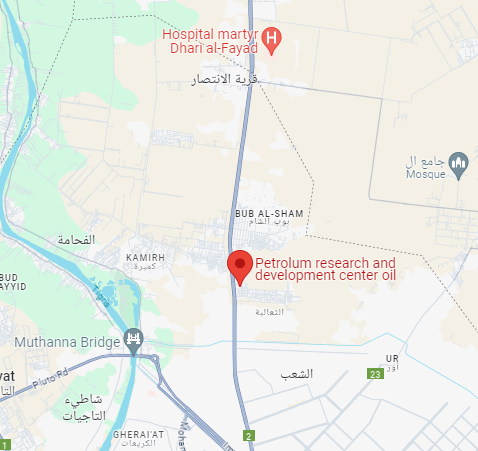Uncertainty Assessment of Reservoir Modeling for Oilfield in the South of Iraq
DOI:
https://doi.org/10.52716/jprs.v13i4.739الكلمات المفتاحية:
Sensitivity analysis، Uncertainty quantification، Monte Carlo method، Proxy، Reservoir simulator، Cumulative oil productionالملخص
A reservoir is formed due to geologic deposition processes and is not created randomly. However, because of subsurface complexity and limited data, there are many uncertainties in reservoir characterization. Uncertainties can be reduced by gathering more data and/or employing improved technology and scientific methods. Under uncertainty and risk, uncertainty analysis should be performed for investigational analyses as well as decision-making. The main focus of uncertainty analysis in reservoir characterization and management should be to understand what needs to be known and what can be known. Therefore, there are several reservoir parameters’ uncertainties and their quantitative influence on cumulative oil production and water cut were studied.
In this paper, sensitivity analysis and uncertainty quantification were conducted for several parameters to study their effect on cumulative oil production. The Monte Carlo method was used to carry out the uncertainty quantification. In this study, we examined two methods which are the Monte Carlo simulation using a Reservoir simulator (MCRS) and the Monte Carlo simulation using a Proxy (MCP) to overcome the issue of the high number of simulation runs requirement and to reduce time consumption.
The results showed that The MCP method is a very useful and powerful tool to conduct the uncertainty quantification than the MCRS because the MCP performs the objective function with extremely less time-consuming and very accurate and identical results compared to the results of the MCRS method. The results of uncertainty quantification for production forecast show there is a low risk due to the small gap difference between the P50 and P90. While the sensitivity analysis results showed that the oil-water-contact depth is the dominant parameter that affects cumulative oil production while porosity is the less influential parameter.
المراجع
A. K. Pandey, V. Kumar, A. Bharsakle, K. Vasudevan and D. Singh, "Comprehensive Quantification of Uncertainty Parameters and its Role in Integrated Reservoir Characterization of Carbonate Environment," in Offshore Technology Conference., Houston, Texas, USA, April 2018.
P. A. Slotte and E. Smørgrav, "Response Surface Methodology Approach for History Matching and Uncertainty Assessment of Reservoir Simulation Models," in SPE Europec/EAGE Annual Conference and Exhibition, Rome, Italy, 2008. https://doi.org/10.2118/113390-MS
S. D. Mohaghegh, "Quantifying uncertainties associated with reservoir simulation studies using surrogare reservoir models," in SPE Annual Technical Conference and Exhibition, Texas, U.S.A., 2006. https://doi.org/10.2118/102492-MS
E. P. d. Santos Sousa and A. C. Reynolds, "Markov Chain Monte Carlo Uncertainty Quantification with a Least-Squares Support Vector Regression Proxy," in SPE Reservoir Simulation Conference, Texas, USA, 2019. https://doi.org/10.2118/193918-MS
R. A. Kolajoobi, H. Haddadpour and M. E. Niri, "Investigating the capability of data-driven proxy models as solution for reservoir geological uncertainty quantification," Journal of Petroleum Science and Engineering, vol. 205, 2021. https://doi.org/10.1016/j.petrol.2021.108860
A. Camachoa, A. Talavera, A. A. Emerickc, M. A. Pacheco and J. Zanni, "Uncertainty quantification in reservoir simulation models with polynomial chaos expansions: Smolyak quadrature and regression method approach", Journal of Petroleum Science and Engineering, vol. 153, pp. 203-211, 2017. https://doi.org/10.1016/j.petrol.2017.03.046
Y. Z. Ma, Quantitative Geosciences: Data Analytics, Geostatistics, Reservoir Characterization and Modeling, Springer International Publishing, 2019.
J. J. J. Hutahaean, "Multi-Objective Methods for History Matching, Uncertainty Prediction and Optimisation in Reservoir Modelling", PHD dissertation,Institute of Petroleum Engineering School of Energy, Geoscience, Infrastructure and Society, Heriot-Watt University, 2017.
M. A. Christie, J. Glimm, J. W. Grove and D. M. Higdo, "Error analysis and simulations of complex phenomena," Los Alamos Science, vol. vol. 29, p. pp. 6–25, 2005.
I. Z. Mezghani, E. Manceau, M. Feraille and A. Jourdan, "Uncertainty management: from geological scenarios to production scheme optimization", Journal of Petroleum Science and Engineering, vol. 44, no. 1-2, p. 11–25, 2004. https://doi.org/10.1016/j.petrol.2004.02.002
J. F. Bueno, R. D. Drummond, A. C. Vidal and S. S. Sancevero, "Constraining uncertainty in volumetric estimation: a case tudy from Namorado Field, Brazil", Journal of Petroleum Science and Engineering, vol. 77, no. 2, p. 200–208, 2011. https://doi.org/10.1016/j.petrol.2011.03.003
C. Carpenter, "Produced-Water-Reinjection Design and Uncertainties Assessment", Journal of Petroleum Technology, vol. 65, no. 12, pp. 129-131, 2013. https://doi.org/10.2118/1213-0129-JPT
M. J. Pyrcz and C. V. Deutsch , GEOSTATISTICAL RESERVOIR MODELING SECOND EDITION, Oxford University Press, 2014.
H. Yong, H. Wenxiang, Z. Yanli, G. Bincheng and G. Zhaopu, "Uncertainty, sensitivity analysis and optimization of a reservoir geological model", Marine Georesources & Geotechnology, vol. 39, no. 2, pp. 129-139, 2021. https://doi.org/10.1080/1064119X.2019.1679926
H. Chunliang, L. Song, G. Li, G. Taixian and Y. Qinghong, "A Quantitative Method for Appraising Reservoir Geological Model Uncertainty," Petroleum Exploration and Development, vol. 34, no. 5, p. 574–579, 2007.
P. R. Ballin, K. Aziz, A. G. Journel and L. Zuccolo, "Quantifying the impact of geologic uncertainty on reservoir performance forecasts", in SPE Symposium on Reservoir Simulation, New Orleans, Louisiana, 1993. https://doi.org/10.2118/25238-MS
التنزيلات
منشور
كيفية الاقتباس
إصدار
القسم
الرخصة
الحقوق الفكرية (c) 2023 Mustafa Rashid, Sameera M. Hamd-Allah

هذا العمل مرخص بموجب Creative Commons Attribution 4.0 International License.














